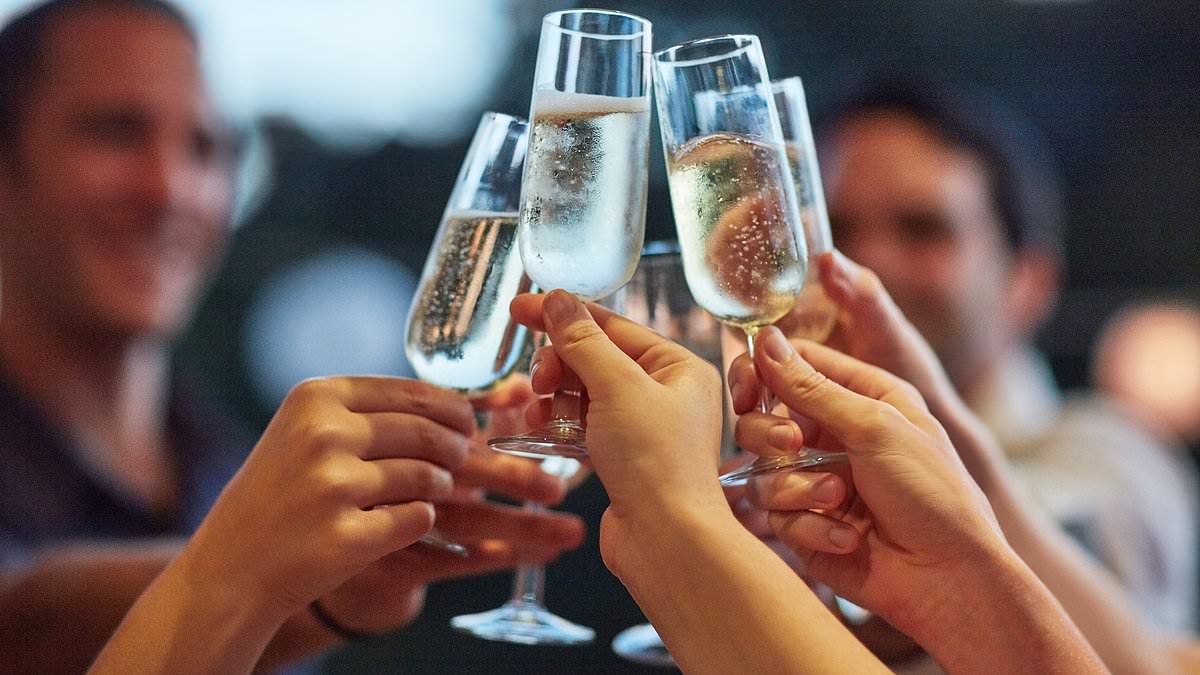Sales of champagne have plummeted to a 25-year low – and experts are blaming Gen Z for the slump.
Champagne is renowned as the perfect drink for a celebration but amid the cost of living crisis and the uncertain political climate in Britain, is there simply just not a cause for celebration?
Evidently not, as consumers are now more than ever choosing to buy cheaper alternatives to a bottle of champagne.
22.3 million bottles of bubbly were shipped to Britain last year, which is the lowest since 2000, when 20.5 million were imported.
And such a lack of sales has brought about a significant increase in price with the cost of a bottle soaring by 25 per cent in the last three years alone. At many major retailers, shoppers can now expect to pay more than £40 for champagne.
It’s hardly surprising then that sales of alternatives such as Prosecco are at an ‘all-time-high’. At Waitrose, a bottle of Waitrose Blueprint Prosecco can be snapped up for just £6.39.
Indeed, 660 million bottles of prosecco and more than 114.5 million bottles of Cremant, a similar alternative, were sold in 2024.
But while some have put the ‘champers’ slump down to rising prices, others are blaming Gen Z’s ‘no drinking culture’.
Sarah Montano, a Retail Marketing Professor at the University of Birmingham, says young people have brought about a boom in the zero per cent alcohol market, which could too be impacting champagne’s sales.
‘Gen Z are consuming a lot less alcohol than previous generations,’ she said.
‘Mental health, changes in socialising patterns, healthy lifestyles, the cost of drinking out – these are all factors affecting people’s drinking patterns.
‘Gen Z are called the “sober-curious generation” and I think if you look at patterns of sales, non-alcoholic beer and wine is a booming market.
‘Take champagne, for instance, Nozeco (non-alcoholic sparkling wine) is very popular at the moment. £380million is the value of that market and it could grow to up to £800million over the next few years.’
Professor Montano also cited the ever-increasing price of champagne as a factor contributing to the slump.
‘Champagne is actually quite expensive, you won’t just throw it in your basket because it costs a lot of money,’ she added.
‘Prosecco and something like Cava have really enhanced their profile as an alternative to champagne. They’re just more affordable.
‘Champagne is a very specific drink – it’s for a celebration. Not many people regularly crack open a bottle after a long day at work.
‘It’s a celebratory drink so it’ll always have its place but it’s struggling at the moment.’
Rising prices have not just been brought about by plummeting sales, however, with champagne companies’ expenses having increased over the past couple of years too.
Grapes, for instance, a key ingredient in wine and champagne, now cost almost £6 per kilogram. Each bottle of champagne contains at least 1.2 kilograms of the ingredient.
Energy, wages, dry goods and interest rates have also increased over the same period leaving companies with no choice but to raise prices.
